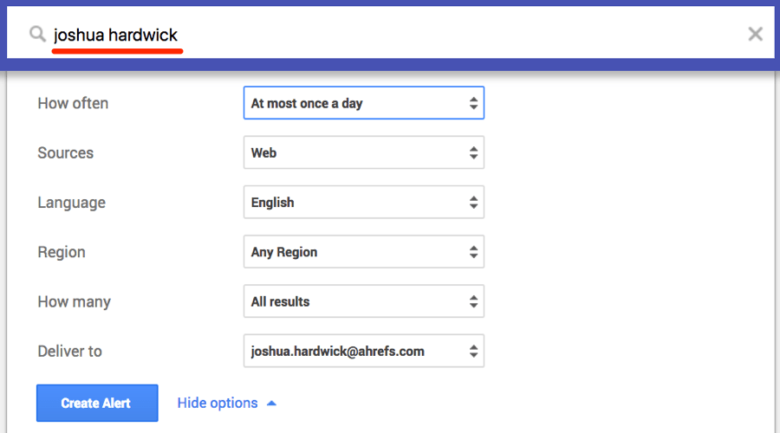Online dating is becoming an increasingly popular way to meet someone special. With its easy access and wide reach, it makes connecting with others easier than ever before. However, the same convenience and anonymity that makes online dating attractive can endanger your privacy if used improperly.
Fortunately, there are steps you can take to protect yourself in the digital age. This guide will provide an overview of the importance of maintaining your privacy while utilizing online dating platforms as well as tips for creating a safe and secure online presence.
1. Use a secure website

Source: verywellmind.com
When considering online dating sites, it’s important to keep your safety and privacy at the forefront of your search. The best way to do this is by researching secure dating sites that offer legitimate, high-quality services with valid identification checks. It is also important to select a website or application with a reputable provider and look for user reviews to ensure the quality of the service.
Be sure to provide only minimal details when signing up and never use false information or connect your social media account, as these reveal more about you than desired. To ensure maximum security, opt for websites that require two-factor authentication (2FA) such as email confirmation linking or an additional password or code sent by text message. Additionally, double-check policies on data protection and be aware of any meaningful disclaimers in order to better understand how your personal information is being used and processed. If you are not sure which site is safe, try https://www.sofiadate.com
2. Avoid sharing personal information
It is easy to underestimate the importance of protecting yourself when it comes to online dating and digital communication. Many users don’t realize that sharing personal information can lead to identity theft, financial losses, or blackmail. To protect yourself from this type of risk, take steps to ensure you are controlling how much personal information is on your profile or shared through messages and communications.
When creating an online dating profile or communicating with another user, avoid sharing unnecessary personal details, such as your addresses, phone numbers, and account numbers. Similarly, refrain from sending images of yourself that could compromise your security such as images with addresses or other identifying landmarks or features visible in the background. Although it may be helpful to be open and honest when talking with another person online, keep in mind that they aren’t a close friend or family member yet; caution should be exercised before revealing too much about yourself too soon.
3. Meet in a public place

Source: independent.co.uk
When setting up a date with someone you have never met before, it is important to choose a place in public – like a restaurant or cafe – where there are plenty of people around and where security staff is available. Make sure to tell your friends who you are meeting and the approximate location of the date. It’s also important to check out any reviews from other customers so that you can be sure the place has a great reputation for safety.
When traveling to the venue, make use of common sense safety precautions: Use public transportation or share rides with friends; don’t carry valuables or wear expensive items; make sure to charge your phone fully, so that you can call for help if necessary; and avoid walking alone in quiet streets after dark.
At the date itself, keep an eye out for suspicious behavior and be on guard for signs of potential trouble. Be discreet when it comes to physical contact – remove yourself from any situation that doesn’t feel right and contact authorities by dialing 999 (or 112 in certain countries) if emergency services are needed. Ensure that someone knows what time you should be home or when they should expect a status update from you in case anything goes wrong while on your date. Above all else, trust your gut instincts – if something feels off or unsafe then listen to that instinct and take appropriate action.
4. Keep an eye out for suspicious activity
It is important to be aware of potential online safety issues to help you protect your online privacy. You should regularly review your profiles and posts to check for any suspicious activity including contacts from unfamiliar people or requests from strangers to meet you in person. Additionally, evaluate any links, images, messages, or videos that appear on your profile and investigate the content before interacting with the material. If these contacts are unwelcome, block the individual and promptly report any concerning behavior to website administrators. Posting high-resolution photos is also discouraged as they can be misused by third parties.
5. Set up alerts for your name

Source: ahrefs.com
Setting up alerts for your name can be a great way to ensure you know when your information is being used or accessed without your permission. This includes setting up alerts that will notify you if any of your posts, photos, and information appear on any online platform.
Additionally, by monitoring what type of information appears online under your name, you can better protect yourself from identity theft and other forms of cybercrime. Alerts are available on many social media sites and search engines such as Google Alerts. You should receive notifications when there is an activity associated with your name so that you have the chance to take action as needed.
6. Use a virtual private network
Virtual Private Network (VPN) technology is essential for protecting your online privacy, as it masks your IP address and encrypts your data. Using a VPN creates a secure tunnel between your device and the website you’re accessing, making it much harder for hackers and cybercriminals to get their hands on your information.
A good VPN should provide strong encryption protocols and high levels of anonymity, such as with a no-logs policy. Additionally, you can also make use of proxy servers to hide your activities from prying eyes and stay anonymous online.
While using a VPN may come at a cost, it could be worth getting one if you want that extra layer of protection when browsing the web or participating in online dating activities.
Conclusion
In the digital age, online dating can be a great way to meet someone new who you can connect with. However, it’s important to take steps to protect your privacy while using these apps and websites. By following the tips in this article you can ensure that your data stays safe and secure when navigating the world of online dating. With a little bit of extra precaution, you’ll have peace of mind that your personal details are secure.




